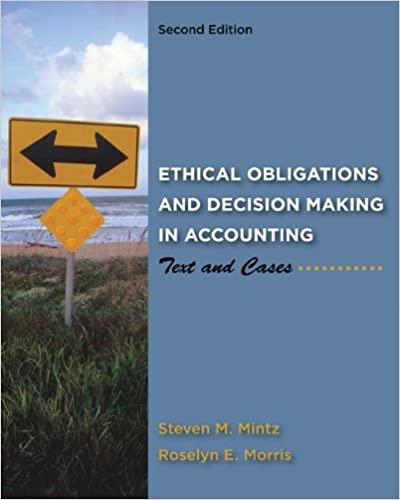Auditors today are subject to increased expectations from regulators and the investing public. At the same time,
Question:
Auditors today are subject to increased expectations from regulators and the investing public. At the same time, corporations are expanding, transactions have become more complex, and there are requirements for auditors to provide much greater levels of assurance related to financial fraud. A paper by the Institute of Chartered Accountants in Australia—titled Professional Judgment: Are Auditors Being Held to a Higher Standard than Other Professionals?'—
contends that auditors are being held to higher standards for judgment than other professions such as law and medicine where the difficulty of making judgments is recognized. The paper suggests that even a well-conducted audit, following all appropriate audit standards, can fail to detect a material fraud in the financial statements, particularly where management has gone to great lengths to cover up the fraud. These considerations are important in an environment where audit standards have the force of law as is the case with public companies whose audits are overseen by the PCAOB, an entity that reports to the SEC.
The paper notes that judgment is the cornerstone of auditing.
The auditor is expected to use professional judgment in light of the given circumstances. Even though auditors should exercise professional skepticism in an attempt to mitigate the risk of being deceived, there will always be some residual risk of material misstatement due to fraud.
With the increased complexity of accounting standards, these judgments for auditors are becoming even more difficult.
This is due in part to the growing number and complexity of standards in areas such as fair value accounting and financial derivatives.
Questions 1. Do you think auditors should be held to higher standards than those in other professions? Why or why not? How do the expectations for professional judgment in the case of external auditors differ from those for internal accountants?
2. To what extent do you think the possession of certain virtues can help mitigate the risk that the audit might fail to detect a material fraud in the financial statements, particularly where management has gone to great lengths to cover up the fraud?
3. To what extent do you think the stage of moral development might influence an auditor’s ability to take the necessary steps to identify and correct for fraud?
Step by Step Answer:

Ethical Obligations And Decision Making In Accounting Text And Cases
ISBN: 9780078025280
2nd Edition
Authors: Steven Mintz, Roselyn Morris





